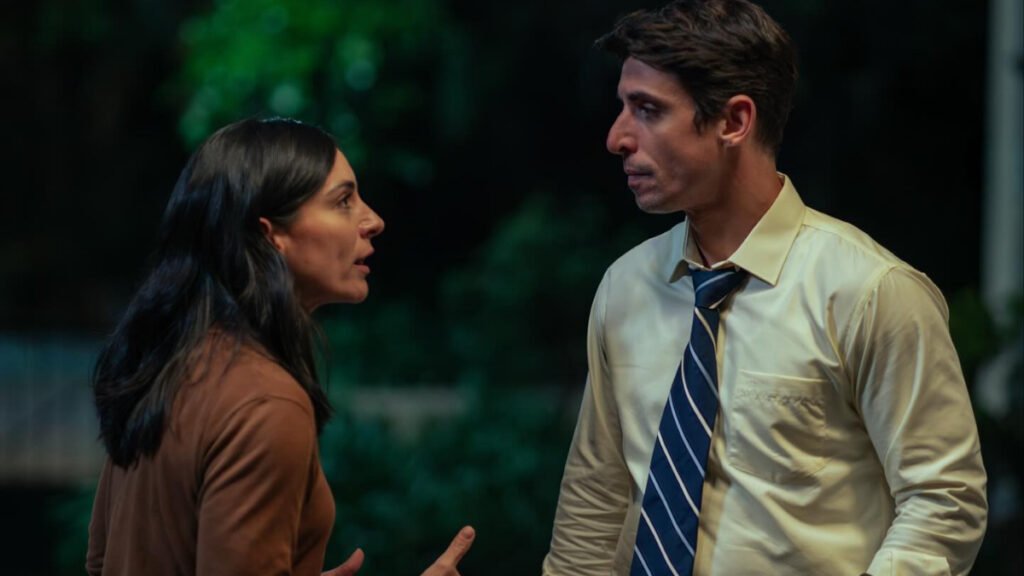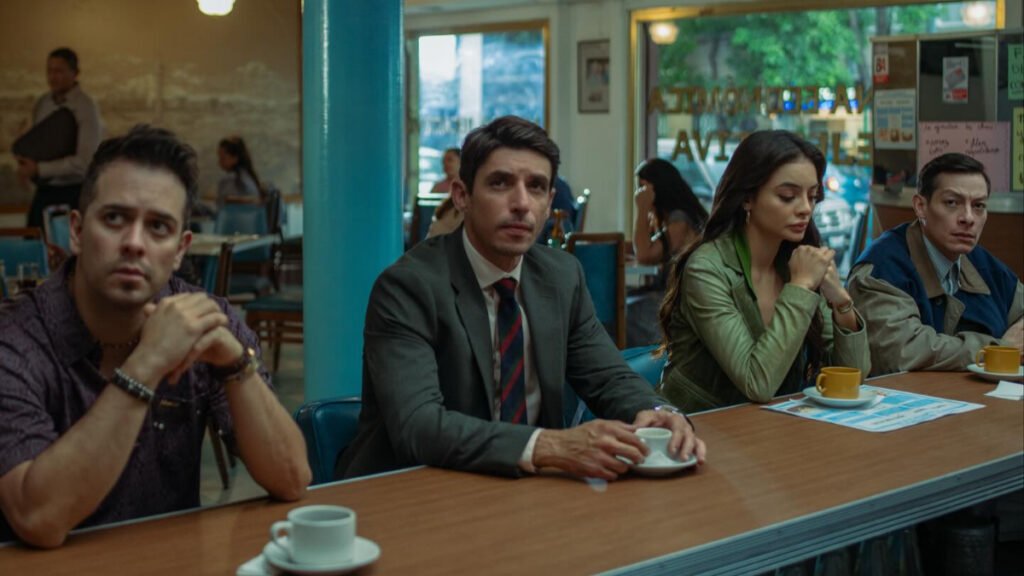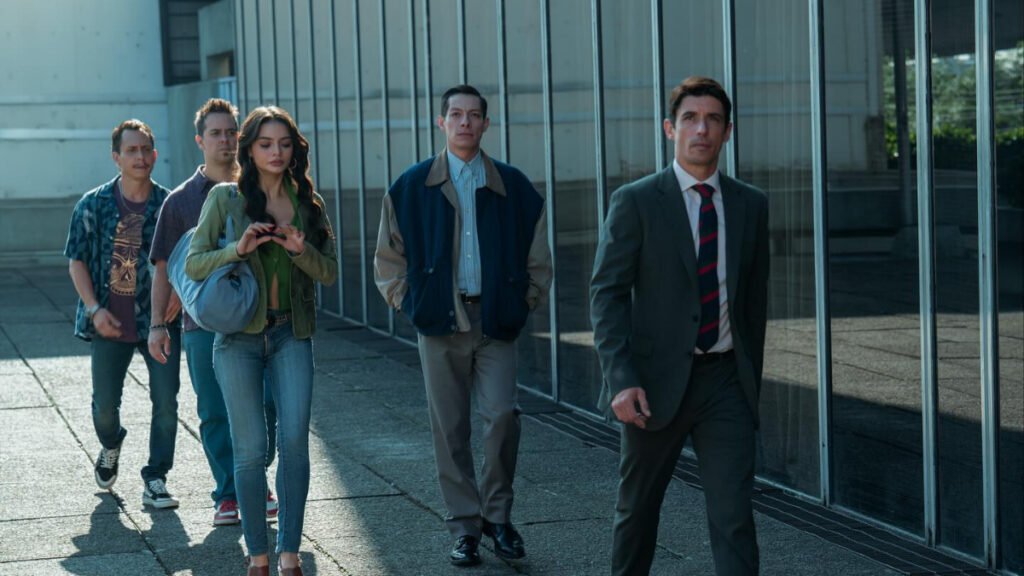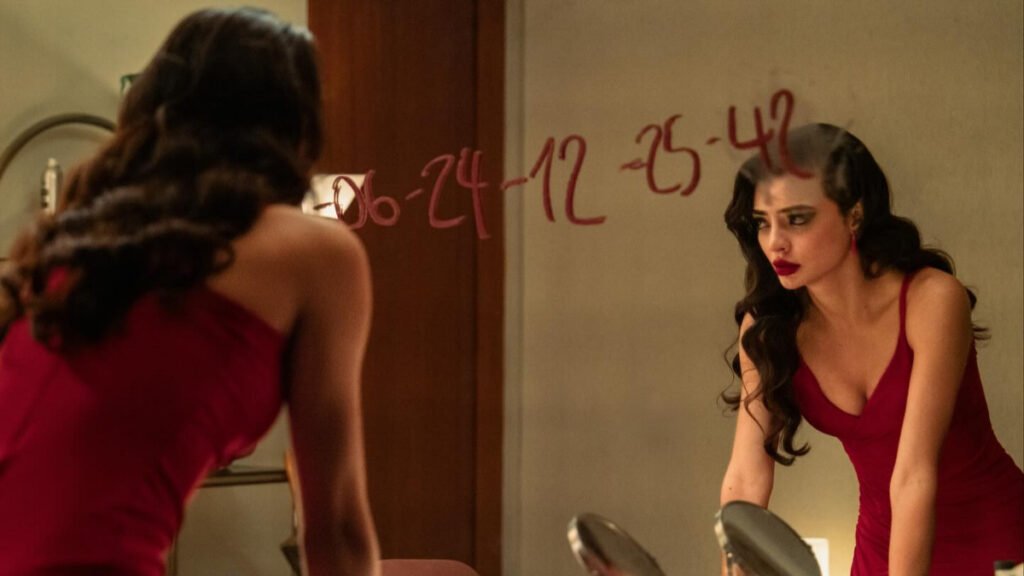How To Win The Lottery Review

Director: Rodrigo Santos and Federico Veiroj
Date Created: 2025-11-17 01:30
3
How To Win The Lottery Review: Directed by Rodrigo Santos and Federico Veiroj, Me Late Que Sí stars Alberto Guerra, Ana Brenda Contreras, María José Vargas Agudelo, Aldo Escalante Ochoa, Luis Alberti, and a great cast of supporting actors. The series contains six episodes, each with a runtime of around 45 minutes. Centred on the real-life lottery scam in Mexico, the story takes one true incident and moulds it into a high-tension blend of comedy and drama, using it as the basis for a story as frantic as it is sure-footed in its characters’ emotional struggles.
How To Win The Lottery Review
While the show has a well-rounded emotional core at the beginning, it quickly develops momentum with the inclusion of moral dilemmas and personal ambitions that shape the tone of the Netflix series How To Win The Lottery. It revolves around Jose Luis’ who needs to secure his daughter’s future, and that becomes the anchor of the narrative, which the show then uses to justify the risk he eventually takes. Early episodes really shine in portraying the quiet frustrations of a civil servant who has spent years watching corruption thrive around him while remaining underpaid and undervalued.

As it unfolds, the show settles into a heist-like rhythm, playing with tension and dark humour in ways that make us curious, even when the pace is uneven. This tonal balancing act speaks to both the strengths and weaknesses of Netflix’s How To Win The Lottery, which provides great character dynamics but often extends its storyline for longer than it needs to. The middle episodes contain some of the series’ most gripping moral conflicts, but also moments where the narrative does feel slightly repetitive.
Where the show truly shines is in portraying the teamwork born out of desperation. Each scammer has emotional baggage, and motivations feel believable within the universe of the How To Win The Lottery series. Lina’s fight for her son, the Velasco brothers’ dreams of social mobility, and Charly’s battle with guilt and faith provide a layer of humanity that elevates the plot. These side arcs create a rich emotional texture for the show, even when the main storyline starts to take a predictable turn.

Despite this strong writing in character-building, the show sometimes veers into inconsistency with tone. Most of the scenes that are supposed to be comic flair often contrast with the more dramatic sequences, creating some sort of tonal whiplash. This genre mix, however, is one of the defining aspects of the Mexican series How To Win The Lottery, in which the absurdity of the heist meets the seriousness of each character’s personal crisis. It works to the show’s advantage more often than not, giving it a very lively and unpredictable narrative.
Also Read: The Crystal Cuckoo Ending Explained: Who Was Behind the Disappearances in Town? Who Killed Miguel?
The series works fairly well from a technical standpoint to maintain visual interest. The cinematography captures the dullness of government offices and tension in the backrooms where the scam is prepared. Camera movements-especially the rehearsals of the mock draw-are well done to build suspense as these characters inch closer to committing their high-stakes crime. Directing places a high premium on human expression-fear, ambition, and anxiety, each adding depth to the unfolding drama, strengthening this lottery scam drama keyword variation.

The payoff to the show is greatest in its final episode, where tension escalates to the peak and consequences catch up with the characters. The resolution is jarringly abrupt, while the climax is great. Opting for a realistic conclusion, the series chose a conclusion that fits real life and limitations, but didn’t have the oomph befitting the culmination built over six episodes. The narrative choice of keeping the show grounded actually diminishes the expected emotional high for the viewers during the finale, echoing a reflective tone of a Mexican lottery crime show review keyword variation.
One of the more memorable elements of the series is the way it approaches ambition versus morality. The protagonists balance on a thin line between criminals and sympathetic individuals, and question whether their wrongdoing is justified by circumstance. This grey ethical zone is treated thoughtfully, and we empathise with characters knowing full well they break the law. This depth in narrative underlines the thematic ambition of the show and justifies treating it as part of a character-driven lottery thriller keyword variation.

Overall, How to Win the Lottery is engaging, entertaining, and emotionally layered. The series falls short of greatness due to pace issues and an ending that feels more matter-of-fact than dramatically satisfying. Fortunately, the performances remain its strongest asset, with Alberto Guerra turning in a nuanced performance of a man torn between his love for his daughter and frustration with a broken system. The series works best when exploring the humanity behind the crime rather than the mechanics of the scam itself and forms a balanced perspective suitable for a true-story-inspired heist drama.
Netflix How To Win The Lottery Review: Summing Up
Overall, this Netflix series Me Late Que Sí is a great and entertaining show with well-remembered characters, though it was not perfect due to the structural inconsistencies, and the finale did not quite live up to the suspense built throughout its episodes. However, its mix of humour, tension, and heartfelt motivations makes the journey worthwhile for a viewer who enjoys morally complex stories which have actually happened in real life.
